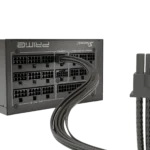
Understanding Crypto Wallets: Which Type is Right for You?
Understanding Crypto Wallets: Which Type is Right for You?
As the world of cryptocurrency continues to expand, understanding how to securely store your digital assets is essential. Crypto wallets come in various forms, each offering different levels of security, convenience, and accessibility. Whether you’re new to crypto or a seasoned investor, choosing the right wallet can make a big difference in how you manage your digital currency. In this guide, we’ll explore the different types of crypto wallets and help you determine which one suits your needs.
What is a Crypto Wallet?
A crypto wallet is a tool that allows you to interact with blockchain networks, sending and receiving cryptocurrencies like Bitcoin, Ethereum, and others. Wallets don’t store the currency itself but manage the private keys needed to access your digital assets. The safety of your crypto holdings depends largely on how securely these private keys are stored.
There are two main categories of crypto wallets: hot wallets and cold wallets. Let’s break them down further.
Hot Wallets: Convenient, But Less Secure
Hot wallets are connected to the internet, making them easily accessible and user-friendly. They are perfect for everyday transactions and short-term storage. However, because they are online, they are more vulnerable to hacking and cyber attacks.
Types of Hot Wallets
- Mobile Wallets Mobile wallets are apps that you can download onto your smartphone, allowing you to manage your crypto on the go. They are convenient for daily transactions and are easy to set up.
- Pros: Easy to use, accessible, ideal for small amounts.
- Cons: Vulnerable to hacking if your phone gets compromised.
Best For: Beginners and users who need to transact frequently.
- Desktop Wallets Desktop wallets are software applications installed on your computer. They give you more control over your private keys than mobile wallets and are generally safer as long as your computer is secure.
- Pros: More secure than mobile wallets, user-friendly.
- Cons: Still vulnerable to malware and phishing attacks.
Best For: Regular users who want more security but still need access to their funds.
- Web Wallets Web wallets are hosted online by a third party. These wallets are accessible through browsers, and while they’re convenient, they come with a higher risk due to reliance on external service providers.
- Pros: Accessible from anywhere, no need for software installation.
- Cons: Higher risk of cyber attacks, reliance on third-party security measures.
Best For: Users who prioritize convenience and don’t hold large amounts of crypto.
Cold Wallets: Maximum Security, Limited Access
Cold wallets, also known as hardware or offline wallets, store your private keys offline, providing a much higher level of security. These wallets are ideal for long-term storage of large amounts of cryptocurrency. The downside is that they are less convenient for frequent transactions.
Types of Cold Wallets
- Hardware Wallets Hardware wallets are physical devices that store your private keys offline. They resemble USB drives and must be connected to your computer or phone to access your crypto. Since they are offline, they are immune to online hacking attempts.
- Pros: Extremely secure, ideal for storing large amounts of cryptocurrency.
- Cons: Can be lost or damaged, costs more than other wallet types.
Best For: Serious investors looking for maximum security for their long-term holdings.
- Paper Wallets A paper wallet involves printing out your private and public keys on a piece of paper, which can then be stored in a secure place. Since it’s offline, it’s safe from online attacks, but the risk lies in the physical safety of the paper itself.
- Pros: Completely offline, no hardware cost.
- Cons: Prone to physical damage or loss, not user-friendly for frequent transactions.
Best For: Long-term holders who don’t need to access their crypto regularly.
Custodial vs. Non-Custodial Wallets
In addition to being hot or cold, wallets can also be categorized as custodial or non-custodial.
- Custodial Wallets: A third party, such as an exchange, controls the private keys. While this makes the process easier, it also means you don’t have full control over your assets.
- Best For: Beginners who prefer convenience and don’t mind trusting an external provider.
- Non-Custodial Wallets: You have full control over your private keys, giving you complete ownership of your crypto. However, with this control comes greater responsibility, as you are the only one accountable for securing your assets.
- Best For: Experienced users who value full ownership of their crypto.
Which Wallet is Right for You?
Choosing the right wallet depends on several factors, including how often you plan to use your crypto, how much security you need, and your level of experience.
- For frequent transactions: A hot wallet like a mobile or desktop wallet is your best bet. They provide the flexibility to send and receive crypto quickly, though you should only store small amounts due to the security risks.
- For long-term storage: A cold wallet, such as a hardware wallet, is the safest option. While less convenient for daily use, it offers the highest level of protection for large amounts of cryptocurrency.
- For beginners: A custodial wallet hosted by a reputable exchange can simplify the process of managing your crypto. However, if you’re willing to take on more responsibility, a non-custodial wallet provides better security and control.
- For serious investors: A combination of both hot and cold wallets might be the way to go. Use a hot wallet for your daily transactions and a cold wallet for long-term storage.
Security Tips for Your Crypto Wallet
Regardless of which type of wallet you choose, securing your crypto assets is crucial. Here are some tips to enhance your wallet’s security:
- Enable Two-Factor Authentication (2FA): Add an extra layer of security to your account.
- Use Strong, Unique Passwords: Avoid reusing passwords across different platforms.
- Backup Your Private Keys: Keep backups of your private keys in multiple secure locations.
- Stay Up-to-Date on Security Practices: Regularly check for wallet updates and follow the latest security advice.
Conclusion
Choosing the right crypto wallet is a critical step in managing your digital assets. Whether you prioritize convenience, security, or a balance of both, there’s a wallet type suited to your needs. As you grow more comfortable with cryptocurrency, you may find yourself using multiple types of wallets to maximize both accessibility and security.
By understanding the differences between hot and cold wallets, custodial and non-custodial options, you can make informed decisions that align with your crypto goals in 2024 and beyond.




